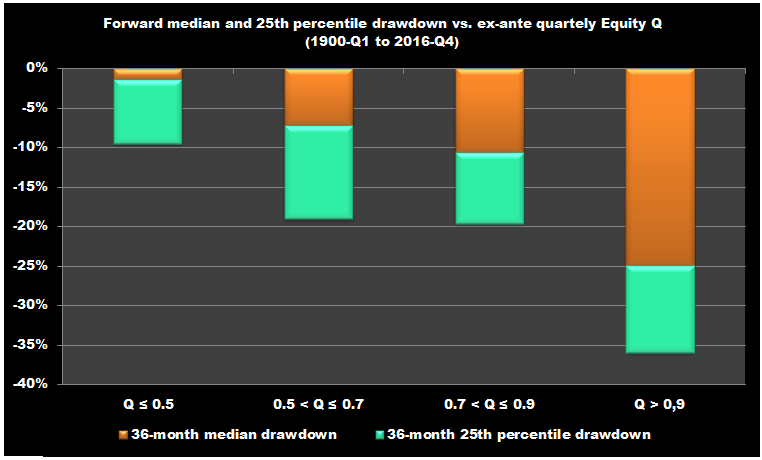Is AI Therapy A Surveillance Tool In A Police State? Exploring The Risks

Table of Contents
Data Security and Privacy Violations
AI therapy platforms collect vast amounts of personal and sensitive data, including intimate details about users' mental health, relationships, and personal experiences. This data is incredibly vulnerable to breaches and misuse, posing significant risks in any context, but especially within a police state.
The Vulnerability of Sensitive Data
The sheer volume and sensitivity of the data collected make AI therapy platforms prime targets for cyberattacks and data breaches. Consider these vulnerabilities:
- Lack of robust data encryption and security protocols: Many platforms lack the sophisticated encryption and security measures needed to protect highly sensitive personal information from unauthorized access.
- Potential for hacking and data leaks: Sophisticated hacking techniques can easily compromise poorly secured databases, potentially exposing users' private mental health information to the public or malicious actors.
- Risks of unauthorized access by government agencies or malicious actors: Without strong legal protections, government agencies in a police state could potentially demand access to this data, violating user privacy and confidentiality. Malicious actors could also exploit weaknesses for blackmail or other nefarious purposes.
- Lack of transparency regarding data storage and usage policies: Many users are unaware of where their data is stored, how it's used, and who has access to it, creating a significant lack of control and trust.
Potential for Government Surveillance
In a police state, the sensitive data collected by AI therapy platforms presents a significant opportunity for government surveillance. Authorities could use this information to:
- Government mandates for data access: Governments could mandate access to this data, bypassing standard legal processes and violating user privacy.
- Backdoors in AI therapy platforms for law enforcement: Platforms could be designed with backdoors allowing law enforcement to access user data without their knowledge or consent.
- Use of AI-generated insights for profiling and targeting individuals: AI algorithms could analyze the data to identify individuals deemed “at risk” or “disloyal,” leading to discriminatory profiling and targeting.
- Chilling effect on open and honest communication with therapists: The fear of surveillance could create a chilling effect, discouraging users from openly discussing sensitive issues with their therapists, undermining the effectiveness of therapy.
Algorithmic Bias and Discrimination
AI algorithms are trained on data, and if this data reflects existing societal biases, the algorithms will inevitably perpetuate and amplify these biases. This is a serious concern for AI therapy, potentially leading to discriminatory outcomes.
Bias in AI Algorithms
The inherent biases in the data used to train AI algorithms can lead to several problematic outcomes:
- Bias against certain demographics in diagnosis and treatment recommendations: Algorithms might incorrectly diagnose or recommend inappropriate treatments for certain demographic groups due to biases present in the training data.
- Reinforcement of harmful stereotypes and prejudices: AI therapy could inadvertently reinforce existing societal biases and prejudices, further marginalizing vulnerable populations.
- Unequal access to quality AI therapy based on demographic factors: Bias in algorithms could lead to unequal access to high-quality AI therapy based on factors like race, gender, or socioeconomic status.
Lack of Accountability and Transparency
The “black box” nature of many AI algorithms makes it difficult to identify and address biases. This lack of transparency hinders efforts to ensure fair and equitable treatment for all users:
- "Black box" nature of AI algorithms: The complexity of some AI algorithms makes it difficult to understand how they arrive at their conclusions, making it hard to detect and correct bias.
- Difficulty in auditing for bias and discrimination: Lack of transparency makes it difficult to conduct independent audits to identify and address biases within the algorithms.
- Limited opportunities for user redress in case of unfair treatment: Users may have limited recourse if they believe they've been unfairly treated due to algorithmic bias.
Erosion of Trust and Confidentiality
The potential for surveillance significantly undermines the trust and confidentiality essential for effective therapy. Users may be hesitant to share sensitive information, fearing misuse.
The Impact on the Therapeutic Relationship
The fear of surveillance can severely damage the therapeutic relationship:
- Reduced openness and honesty during therapy sessions: Users may withhold information or self-censor, hindering the therapeutic process.
- Inability to explore sensitive topics freely: The fear of judgment or repercussions may prevent users from exploring sensitive and crucial topics.
- Increased difficulty in building a strong therapeutic alliance: A lack of trust undermines the foundation of a strong therapeutic relationship.
The Chilling Effect on Free Speech and Thought
The knowledge that their thoughts and feelings are being monitored can lead to self-censorship:
- Fear of repercussions for expressing dissenting opinions: Users might avoid expressing views that could be interpreted as critical of the government or its policies.
- Suppression of critical thinking and self-reflection: Fear of surveillance can stifle critical thinking and self-reflection, hindering personal growth.
- Erosion of fundamental human rights: The potential for surveillance undermines fundamental human rights, including freedom of thought and expression.
Conclusion
AI in therapy offers significant benefits, but its deployment in environments lacking robust data protection and ethical guidelines poses substantial risks. The potential for AI therapy to become a surveillance tool in a police state is a serious concern demanding careful consideration and proactive measures. We must prioritize data security, algorithmic transparency, and the protection of user privacy to ensure AI therapy remains a force for good. Rigorous ethical frameworks and regulations are crucial to prevent misuse and safeguard individual rights. Let's continue the conversation and work together to ensure responsible development and deployment of AI therapy, mitigating risks and maximizing its potential benefits. Further discussion and research on the ethical implications of AI therapy are critical to avoid its potential use as a surveillance tool in a police state.

Featured Posts
-
 Navigating The Private Credit Boom 5 Dos And Don Ts To Secure Your Role
May 16, 2025
Navigating The Private Credit Boom 5 Dos And Don Ts To Secure Your Role
May 16, 2025 -
 Why Current Stock Market Valuations Are Justified A Bof A Perspective
May 16, 2025
Why Current Stock Market Valuations Are Justified A Bof A Perspective
May 16, 2025 -
 Giant Sea Wall Kolaborasi Pemerintah Dan Swasta Untuk Perlindungan Pesisir
May 16, 2025
Giant Sea Wall Kolaborasi Pemerintah Dan Swasta Untuk Perlindungan Pesisir
May 16, 2025 -
 Viet Jet Faces Financial Reckoning After Court Ruling
May 16, 2025
Viet Jet Faces Financial Reckoning After Court Ruling
May 16, 2025 -
 Vm Hockey Kanadensiska Spelare Saknas Tre Kronors Chanser Oekar
May 16, 2025
Vm Hockey Kanadensiska Spelare Saknas Tre Kronors Chanser Oekar
May 16, 2025
